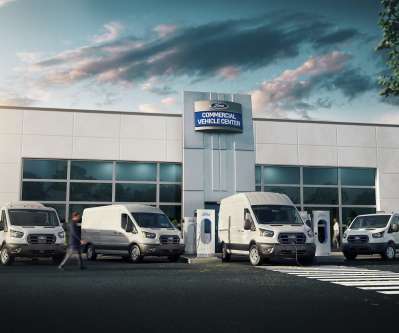Ford opens E-Transit Registration site for commercial customers; new pricing
Green Car Congress
MAY 4, 2021
To date, more than 450 commercial customers in North America, including 200 top fleets and fleet management companies, have said they’re interested in purchasing the E-Transit. It will be built alongside the Transit at Ford’s Kansas City Assembly Plant in Claycomo, Missouri. No deposit or purchase commitment is required.












Let's personalize your content